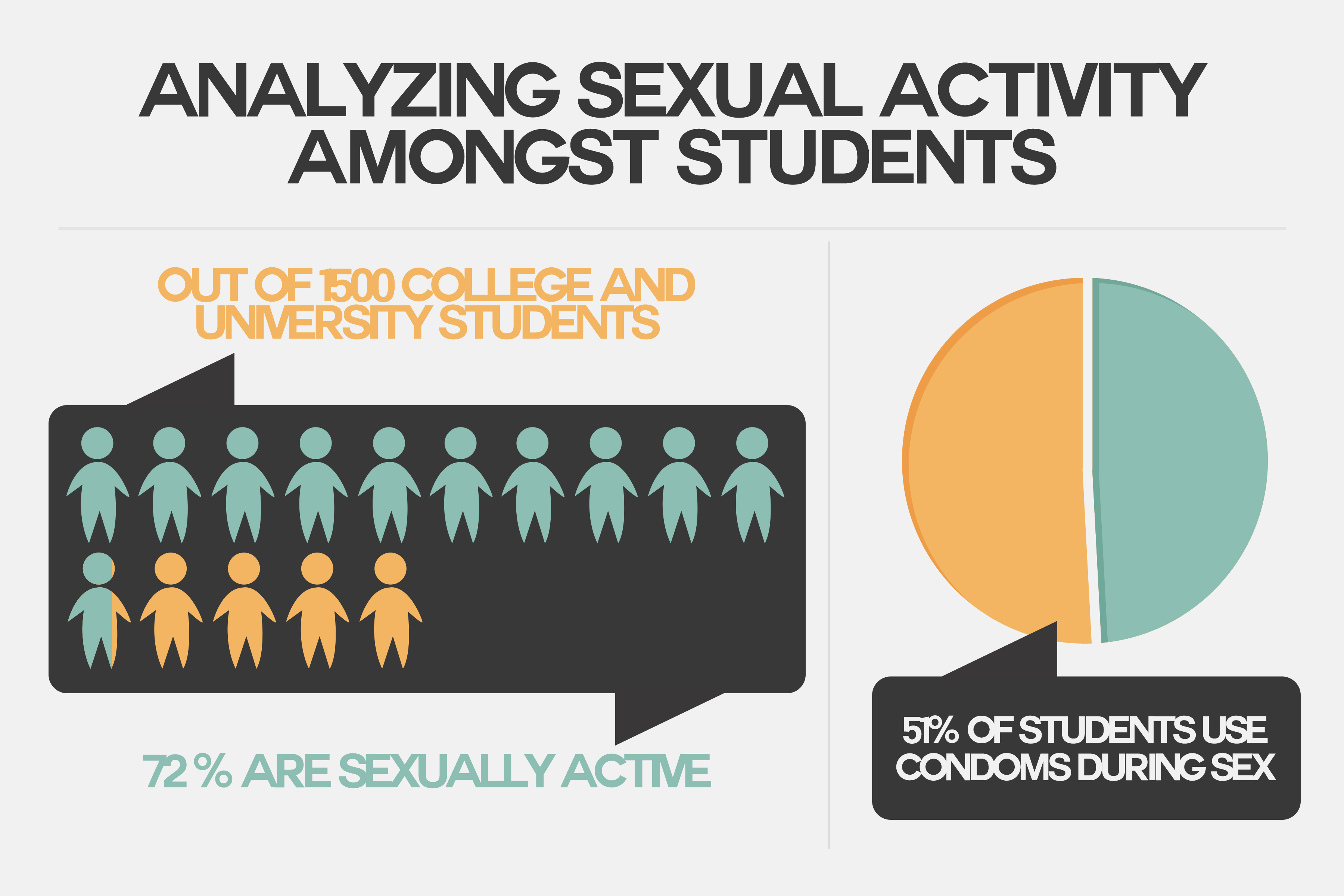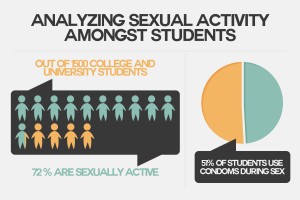Recent report reveals surprising sex facts for university students


When it comes to sex, Canadian university and college students are not exactly being safe. No glove, no love is how the saying goes; however, this is simply not the case for nearly half of Canadian students.
A recent study by Trojan and the Sex Information and Education Council of Canada (SIECCAN) has revealed that of the students who are sexually active, only 51 per cent reported using a condom in their last experience of sexual intercourse.
Alex McKay, Research Coordinator at SIECCAN explained that the reasons behind conducting the study were twofold.
“One was that it wasn’t just focused on condom use. Because we sort of have the backing of Trojan, we were able to do a large-scale study, which looked at a lot of different aspects of sexuality and sexual health,” McKay said.
“And number two that it has been quite some time since there was sort of a taking of the pulse of sexual health among Canadian university students. So we haven’t had a good broad-based data set that measured things like condom use on university campuses.”
“It was time for a check-up.”
The study was conducted with 1,500 university and college students from across Canada.
Of the participants, 72 per cent reported that they were sexually active.
“So what we did find was that roughly half have used [condoms] during intercourse. And that was surprising to me, anyway, because I have been following condom use trends among teenagers and young adults in Canada for a couple of decades now and if you had asked me before the study I would have predicted that condom rate use would have been higher,.” said McKay.
He found that the condom rate use was about the same as it was 15 years ago.
Jessica Karn, a recent nursing graduate from Lambton College, found the statistics surprising given that sex education is implemented early in the secondary school system.
“Not knowing anything about it doesn’t hold up as an excuse when you’re 18 and older in university or college,” Karn said.
“At the same time it doesn’t surprise me because I think that there is a common belief that ‘it won’t happen to me.’”
Karn explained that unprotected sex exposes individuals to a range of sexually transmitted infections and/or unplanned pregnancies.
“In turn in most cases there is also a strain on finishing your education and an added financial burden. With young adults there’s a greater chance of the mother being the primary, or only, care taker of the child, again carrying the financial weight and time management of the situation.”
McKay explained that the main reason given by those who reported that they did not use a condom in their most recent experience of sexual intercourse was because they were using an alternative form of birth control.
“So they weren’t really [as] concerned about sexually transmitted infections (STIs) as they should have been,” explained McKay.
“And when we asked people who didn’t use condoms why they didn’t, they said, ‘well, I’m using another form of birth control.’ So clearly condom-use behaviour was being driven by concerns around birth control.”
McKay observed that those who were engaging in what he termed, “casual sex,” were the most likely to be using condoms during intercourse, as compared to those who considered themselves to be in monogamous relationships, who were the most likely to be refraining from using condoms during intercourse.
However, McKay pointed out that condom use continues to be important in monogamous sexual relationships.
“It’s taking a bit of a risk to just assume because you and your partner both look and feel healthy, and that you’re only having sex with each other, that that has eliminated any risk of STI, because people bring asymptomatic STIs into relationships with them,” McKay said.
Monique Paquette, a fourth-year student at Wilfrid Laurier University, was surprised by the findings of the study.
“I find it shocking,” she said. “Not that many people are in relationships and even if the girl is on birth control that doesn’t protect against diseases.”
“In most cases, you know, the wise thing to do is use condoms consistently,” McKay added.
“Everybody is going to make judgement of risk for themselves but I think what’s important in the findings from this study is that it’s indicating that most university students, those who are sexually active, probably substantially underestimate their risk for STI. You need to assess your risk and act accordingly.”

